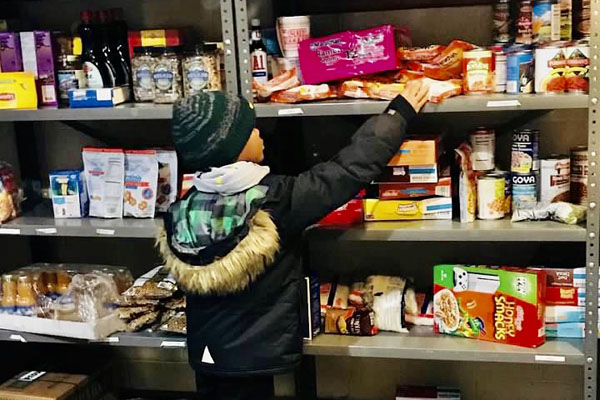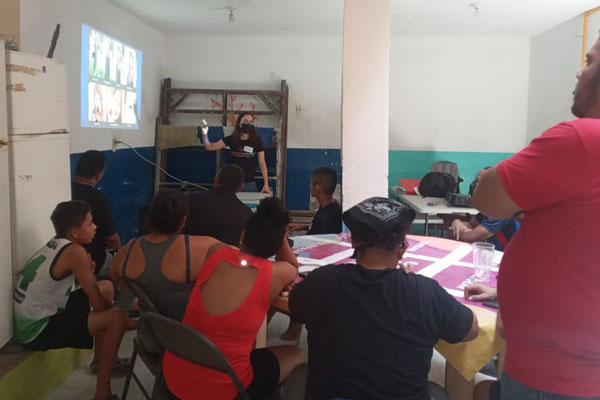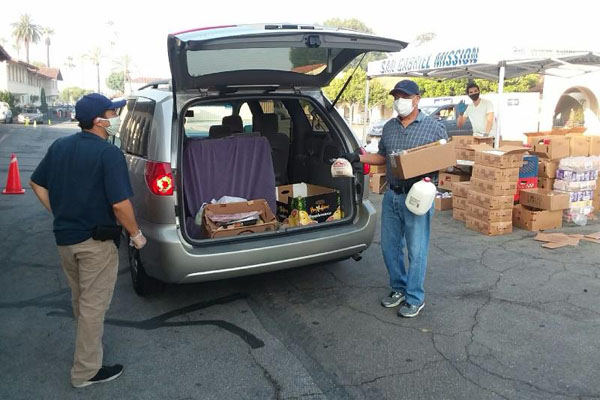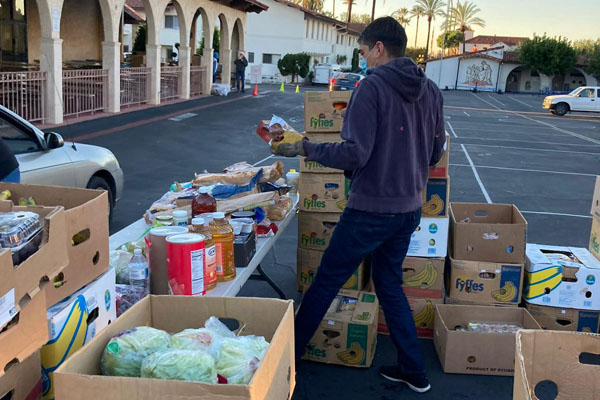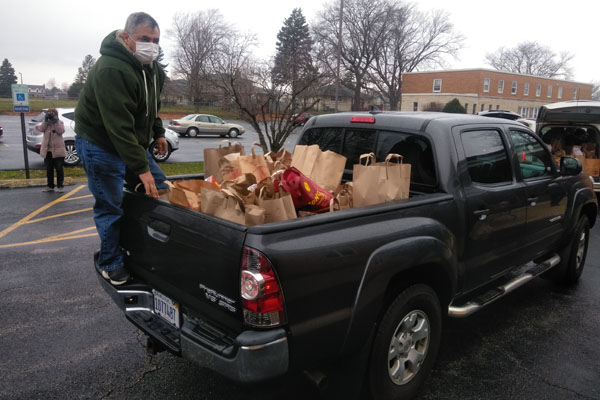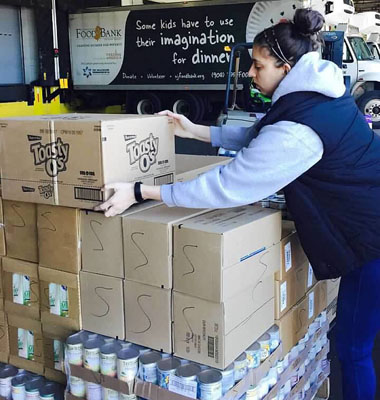10.5 percent (13.8 million) of U.S. households were food insecure at some time during 2020.
Food Pantries
St. Jude League supports a comprehensive network of food pantries which provide vital food resources for their communities. Many poor and low-income neighborhoods are food deserts, lacking in basic resources all too easily taken for granted. Residents of those communities are not able to access the healthy nourishment they need.
Active food pantries and kitchens in our network of programs include:
St. Anthony Mary Claret Parish (Fresno, California)
San Gabriel Mission Food Pantry (San Gabriel, California)
Our Lady of Fatima Food Pantry (Perth Amboy, New Jersey)
St. Joseph Parish (Jersey City, New Jersey)
Our Lady of Guadalupe (Chicago, Illinois)
Associated food pantry ministries in the US and Canada include:
St-Justin (Montreal Quebec)
St-Conrad (Montreal Quebec)
St-John XXIII (Montreal Quebec)
Notre-Dame D’Anjou (Montreal Quebec)
Notre-Dame-de-Protection Parish (Sherbrooke, Quebec)
Saint-Stanislas Parish at Ascot Corner (Sherbrooke, Quebec)
Holy Cross Parish (Ottawa, Ontario)
St-Bernard Parish (Ottawa, Ontario)
Spiritual and Psychological Counseling

Claret Center is a ministry located in Chicago, Illinois, that provides spiritual direction, psychological counseling, wellness workshops, and retreats. The center was founded in 1978 to address the needs of communities, the short supply of spiritual directors trained in sound psychological principles, and a lack of professional psychotherapists. The center focuses on spiritual accompaniment (regardless of religious denomination) and psychological services for adults and children. Its mission is to provide resources to encourage, nurture, and engage the mystery of the human journey through psychotherapy, spiritual direction, body therapies, and related educational experiences. Learn more here.
Hospital Chaplaincy
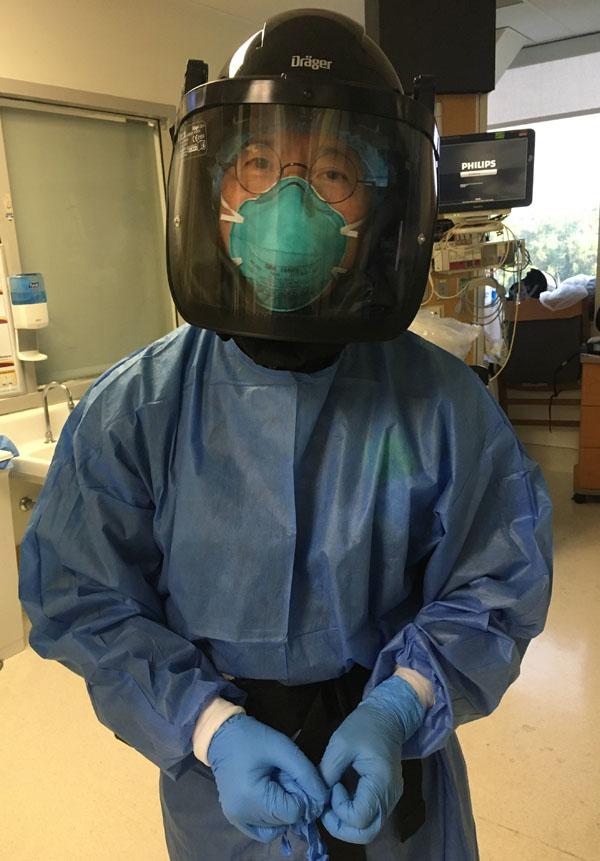
Many Claretian Missionaries serve as hospital chaplains who are present with patients and sensitive to the needs of doctors, nurses, and extended medical staff. Claretian chaplains comfort and accompany families in their times of greatest need, ensure that no one dies alone without support and compassion, and share in the joys of recovery and healing. In addition, some Claretians serve in military medical centers, where they face unique challenges in helping service members and their families cope with injury and loss.
Claret Center has helped countless people to heal the body and explore deeper meaning in everyday life.
– Staff at the Claret Center
Access to healthcare and healthy food is a fundamental component of quality of life.
Coming from a low-income household is not the only indicator of food insecurity. Food deserts – areas that do not have grocery stores that stock affordable and healthy food items – are relatively common in low-income neighborhoods where many residents do not have a means of transportation to a store carrying these essential nutrients.
In addition, the rising costs of healthcare and insurance have made access to necessary medical care impossible for countless people. This affects everything, from nutritional levels to performance at work and school.
Poor nutrition decreases a student’s ability to succeed in the classroom, further widening the education achievement gap. Food insecurity makes it more difficult for children to concentrate in school, causing them to have lower math and reading scores and making them more likely to have to repeat a grade.
The United States government has several programs, including the Supplemental Nutritional Assistance Program (SNAP) and Earned Income Tax Credit (EITC), but these benefits are not always available and may not adequately address the needs of qualifying families.
Children with access to adequate nutrition are more likely to finish high school and less likely to experience obesity, stunted growth, or heart disease as adults. Moreover, they have higher scores on standardized tests, are more likely to go on to college, and statistically have higher earnings as adults.
St. Jude League Community Development supports Claretian-led programs that offer food pantries and medical services. Our commitment to healthcare is not as a provider, but as a conduit of resources to inform and guide people to better health and wellness for themselves and their families.

